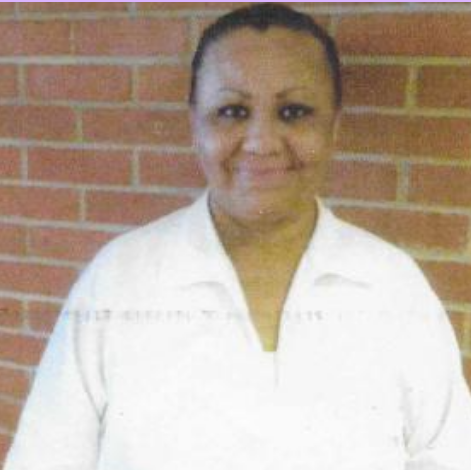Coalition of Former Prosecutors and Anti-Violence Organizations File Brief in Support of Melissa Lucio, Victim of Gender-Based Violence Facing Execution in Texas
August 12, 2021
Yesterday, a coalition of former prosecutors, anti-violence organizations and experts in the field of domestic violence filed an amicus curiae brief in the United States Supreme Court on behalf of Melissa Lucio, a victim of childhood sexual abuse and domestic violence. Melissa was convicted and sentenced to death in connection with the 2007 death of her daughter Mariah. Melissa had no history of assaultive behavior. Her case raises profoundly disturbing questions about the legal system’s treatment of a trauma victim who was sentenced to death for a crime she may not have committed.
The amicus brief explains: “Melissa Lucio was only six years old when she was sexually abused for the first time. For the next two years, her stepfather repeatedly abused her, and Melissa was powerless to stop him. Like many child sex-abuse victims, Melissa became vulnerable to repeated victimization. At the age of sixteen, she married a violent man who abandoned her after she bore five children. Her next partner continued the cycle of violence, punching her in public and beating her at home. By the time she gave birth to her twelfth child, Melissa had experienced homelessness, drug addiction, and severe mental illness.”
Like many victims of repeated sexual abuse and domestic violence, Melissa’s life was marked by trauma. The brief explains that “[a]s a result of the violence she endured throughout her life, Melissa suffered from Post-Traumatic Stress Disorder and depression.” Her symptoms included dissociation—a clinical term that describes how trauma victims lose touch with reality—as well as emotional numbing and avoidance. As one expert observed, Melissa “tends to assume the role of the passive and weak child” when confronted by people stronger than her.
When the police interrogated Melissa, she insisted that she did not kill Mariah. They badgered her, pushing her to accept that she was responsible for her daughter’s death. Texas Ranger Victor Escalon interrogated her until 3 a.m., until, after five hours, Melissa acquiesced and said, “I guess I did it.”
The tactics used by Melissa’s interrogators were roundly condemned in a brief filed yesterday by the Innocence Project and Innocence Network in support of Melissa. They confirm that the tactics used by Escalon and other detectives ran the risk of eliciting a false confession. They explain that the detectives “coached” Melissa into admitting that she caused Mariah’s injuries while she was “exhausted and anxious, and in the shock of fresh grief.” These same tactics have led to wrongful convictions in other cases involving deaths of children around the country.
At trial, the defense tried to present expert testimony to educate the jury about why Melissa, as a victim of sexual abuse and domestic violence, would be more likely to admit to something she did not do. But the trial court refused to allow the testimony. Instead, it allowed Ranger Escalon to say that he knew Melissa was guilty from the time he first laid eyes on her, because of her slumped posture and downcast eyes. As one of the female judges in the U.S. Court of Appeals for the Fifth Circuit observed, “A battered woman was convicted of capital murder because, in a case lacking direct evidence, prosecutors told the jury that, five hours into interrogation, in the middle of the night after the discovery of her dead child, [Melissa] accepted a seasoned interrogator’s suggestion that she was responsible, ultimately agreeing with him that she “did it.”
The Innocence Project’s brief points out that a “substantial percentage of women who were wrongfully convicted of killing a child were coerced into falsely confessing. Of the 67 women listed on the National Registry of Exonerations who were exonerated after a murder conviction, over one quarter (17/67) involved false confessions, and nearly one third (20/67) involved child victims.”
Melissa Lucio may well be one of those women. Yet she remains on death row, because a deeply divided U.S. Court of Appeals held that the exclusion of the experts’ testimony did not amount to constitutional error. This is a case that demands the Supreme Court’s intervention to prevent an irreversible miscarriage of justice.
Sandra Babcock
Read the amicus curiae brief filed by former prosecutors, anti-violence organizations & gender based violence experts here: Coalition brief
Read the Innocent Project’s amicus curiae brief here: Innocence Project brief
